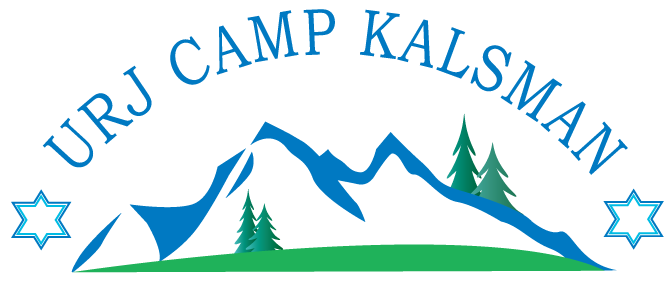By Shira Lyss-Loren, Counselor
On the first Friday of every session we, as a camp community, come together and do an all camp program. This year, we coined it Gimulut Chasa-day. As a member of the Gimulut Chasa-Day planning committee, I saw the insides of how all camp programs are written, planned, and executed. After being a camper my whole life it was inspiring to work with other counselors and leadership team members to create a program much like the ones I remembered from my summers here at Kalsman.
The basic idea behind Gimulut Chasa-Day is to program on different social justice topics, making each topic accessible yet challenging for every kid. In fitting with our education theme this summer, Mitzvot, we come together as a full camp community to make moral compasses. In each part of the compass we write different Mitzvot that we find motivate us to do good in the world. The topics we cover in our programs are diverse, ranging from privilege to immigration to animal rights.
“I learned a lot about the environment and being in nature and how it connects to mitzvot cause one of the mitzvot is to take care of the environment and that’s what we did.” – Eden G. (Nitz)
Throughout the program campers can be found feeding animals while wrestling with the concept of animal rights, seeing first-hand how different treatment of animals affects them. Laughing and working together as they try to build shelters, campers simulate some of the experiences of the homeless population and then connect the Mitzvah of helping those less fortunate to quotes from the Torah.
“The food insecurity station showed me how not everyone has equal resources and how that can set them back in life.” -Zoe N. (Tzofim)
All our campers explore the multifaceted idea of privilege by trying to complete an obstacle with half the group blindfolded but able to talk, and half the group not able to speak but able to see. This is supposed to simulate the real world where often those with more privilege are blind to what most need, but their voice is the one we hear whereas those in touch with what needs to change in our world don’t have a voice. This allows them to see the effects privilege can have on overall success which leads to their conversation about their own personal privilege and how that allows them to help others.
“I liked the program because it let me see older Jewish kids and what they are thinking about the world.” – Lauren W. (Coog.)
As a leader of the station where kids made their own personal moral compasses I saw several kids grasp the connection between their Judaism and Jewish values and their everyday actions. As an 18-year-old Jew, still wrestling with my own beliefs, this blew my mind. To see Kesher campers assist their Coogarim and Nitzotzot counterparts in comprehending this massive job we have as Jews, to engage in works of tikkun olam, truly showed me the magic and ability to have big conversations Kalsman offers their campers. Overall, the all camp program allowed campers to cross unit bond, explore intense ideas and social justice issues in a tangible way, and begin to wrestle with how their Judaism can guide their choices in big and small ways.
